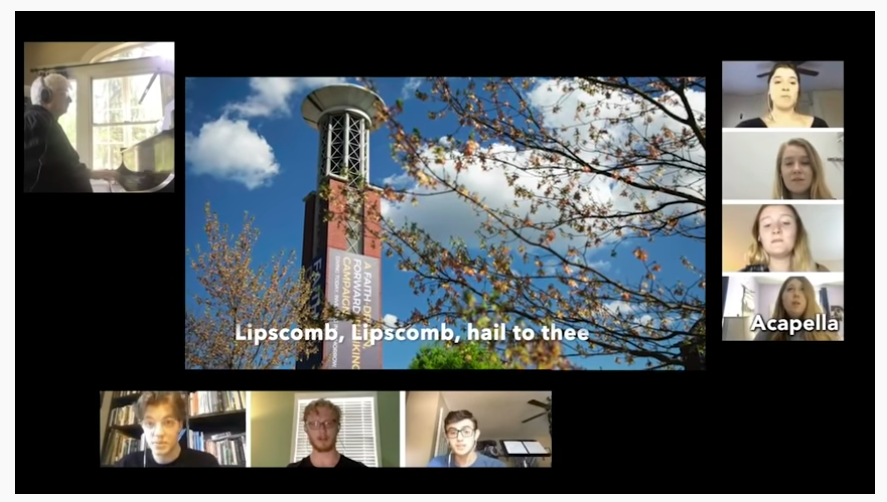The fall semester here at Lipscomb has been a unique transition for everyone. This change has been a new experience for both students and professors in which many classes have been constructed to accommodate for those learning remotely.
Due to the pandemic, a virtual approach has been shown to become the norm within education; Lipscomb has been working especially hard to regulate safety guidelines both on and off-campus.
It has already been a month since Lipscomb has returned to campus, and this year has proven to be a new experience for everyone. Lipscomb is running on the “Lipscomb Flex” model for hybrid learning.
With the student life team actively working on creating events for this year’s student experience, many events have been open to students on campus and remote.
“It’s kind of hard to get involved because a lot of the stuff is on campus,” said Brianna Benkley, a Lipscomb freshman commercial music major who is currently remote in Massachusetts.
With many on-campus events, it is difficult for students like Brianna to get involved, but there have been many opportunities for remote students to still participate.
For Freshmen Orientation, the Lipscomb QuestWeek team provided freshmen with fun and entertaining videos and zoom meetings that allowed students to still have a warm welcome to the semester. “I still feel like part of the community even though I’m far away.”
With The Gathering and Breakout Chapels moving to virtual and small group options, Lipscomb continues to encourage the positive spiritual formation of its students. Breakout Chapels have still allowed remote students to interact with other students through Zoom meetings.
There have also been technological difficulties that students experience with their virtual meetings and online courses. The online learning and teaching system Canvas has been implemented into most of the university’s classes, which allows students to efficiently work on online assignments.
Brianna said that one of her favorite classes is Worship in the Arts. She is the only remote student in that class, but “I really don’t mind it because the professor does a really good job of making me feel included in the class, and I can still make comments even though it’s kind of awkward.”
Students that are not on campus this semester are still participating in their classes even though the experience is different compared to those who are learning in person.
When talking about her Ensemble class, Brianna brought up the difficulties with having a class that is better learning from in the classroom than from the virtual perspective.
“That’s just the hardest thing because you can’t really play live [music] because there could be a lag through zoom, and it’s a live band; it’s one of those things you can’t really do over zoom. So that’s a little difficult to participate in, but again, the bandleader is doing a really great job at making us feel included. You do the best with the circumstances.”
For many remote students, their schedules may be affected by their time zones. For Brianna, she had to adjust her college schedule to fit her personal learning experience from home.
“The crazy thing about doing online is that I have my Nashville schedule because half of me is in Nashville but at the same time, I’m actually in Massachusetts. So, I have my school schedule but then I have my ‘at home’ schedule like normal stuff that I would do. Half of me is in another state and half of me is here.”
For students that are on campus, they have had to adjust to hybrid learning where their classes are split into two groups: in-person and remote learning.
Marcus Wuertz, a Lipscomb Freshman Molecular Biology major from Dickson, Tennessee, said that his most difficult class is the Principle of Biology: Diversity and Ecology. This course has implemented this hybrid learning for students to attend class half in person and half via live video through Zoom.
“There’s a lot to it in general, so switching between class and online is difficult. There’s a lot of sublevels, and it’s really easy to get lost in it from moving between in-person to online then back to in person.”
Adjusting to online class sessions has shown to be difficult for many students, especially courses such as lectures and professors that provide many PowerPoint presentations into their teaching.
“I don’t take as many notes online [not intentionally, though] just because I don’t catch as much that seems significant to write down when I’m not actually there to pick up certain cues.”
So, even for students living on campus, virtual learning has been difficult and stressful to do. Fortunately, Lipscomb has continued to offer many opportunities to its students to get involved.

